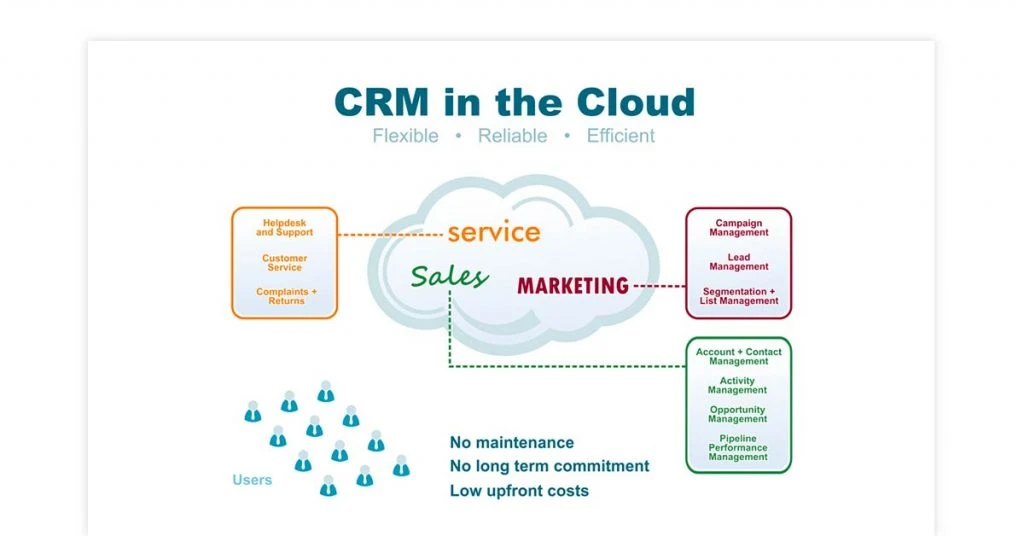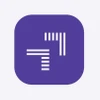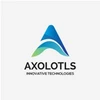Cloud computing has made business processes easier and affordable, especially for small businesses and start-ups. Every industry is embracing cloud computing to improve productivity and accessibility. CRM is one of the primary areas where the cloud has rocked the boat.
SaaS CRM has evolved as a dynamic customer relationship management solution with innovative features, allowing organizations to handle their customers more effectively.
SaaS CRM could be accessed remotely by anyone in the organization having the login credentials, making it one of the most used software delivery models today. Cloud-based CRM offers third-party support, data security standards, integration, and interface tools, making it a viable solution for every industry.
What Is SaaS CRM?
SaaS CRM is a cloud-based customer relationship tool, helping organizations manage their customer base. It combines business processes, people, and technology through the internet to efficiently communicate with current and potential customers.
The software allows you to track customer behavior patterns, shortlist loyal customer base, their preferences, and more through your web browsers.
On-cloud CRM offers transparency and overcomes geographical barriers for better relationship management. Automation, Virtual workspace sharing, real-time communication, flexible access, and adaptability are the central pillars of cloud CRM.
It enables your sales reps to create customer profiles and work on them, monitor leads and sales leads through real-time dashboards.
Who Needs SaaS CRM?

SaaS CRM is crucial to any organization that needs to generate, and follow-up leads, manage customer interactions and feedback, run a customized campaign, manage their social media presence, and enhance customer loyalty.
It covers all aspects of customer relationship management, from helping you get an overview of your customers’ buying patterns to generating new leads, managing your sales workflows, and monitoring the performance of lead sources.
- Small and Medium-Sized Businesses: Cloud-based CRM is an affordable, customizable, and agile CRM solution for startups and other small ventures who are short on investment.
Cloud CRM for small businesses offer the following:
- Affordable pricing
- Remote Access Flexibility
- Scalability
- B2B Sector: B2B businesses need real-time communication, customer service support, customer feedback management, and flexible access to insights into their clientele for higher conversion and retention rates.
On -Cloud CRM for B2B businesses offer the following:
- Real-Time Communication
- Multi-Channel Customer Support
- Collaboration
- B2C Sector: Any retail business that deals with many customers’ needs a CRM solution that offers robust data management and record-keeping capabilities. Flexible access, adaptability, and automated workflow are crucial for efficient operations.
Cloud CRM offers the following for B2C businesses:
- Data Management & Records Keeping
- Customer Segmentation
- Automated Workflows
- Service Sector: Service providers like Software, medical and consulting companies need CRM to raise profitability by increasing their client base, managing leads, and closing sales.
Web-based CRM for service providers offer:
- Client Base Expansion
- Lead Management
- Customized Campaigns
- Solopreneur: Any self-employed person who is always connected with a limited number of clients across different geographies needs a SaaS CRM solution.
Cloud deployed CRM for freelancers and solopreneurs has the following benefits:
- Affordable pricing
- Flexible
- Easy to Use and Manage
Suggested Read: What are the Key Capabilities of CRM Platforms?
Difference Between SaaS CRM Vs In-House CRM

Some of the significant differences between SaaS CRM and in-house CRM are as follows:
Deployment: SaaS CRM is hosted on cloud. It can be accessed anytime, anywhere with internet access, while down-house CRM needs proper installation and maintenance on premises.
Accessibility: With SaaS CRM, your data and software modules are always available to you and your team. You can access the functionalities simply through your browser with login credentials. However, in-house CRM software could only be accessed through a particular network. Cloud CRM can also be accessed through smartphone apps.
Data Security: Cloud-based SaaS CRM solution offers high-end encryption-based data security according to industry standards and government regulation. While in the case of in-house CRM, all the data is stored on the user’s system, and the user has all the control over it.
Updating and Maintenance: The service provider regularly updates and maintains SaaS CRM solution. In the server deployed CRM system, updating and maintaining the software is the user’s duty.
Pricing: Web-based CRM offers flexible pay as you go pricing model, making it cheaper for small businesses with less clientele to pay only for the service they avail. In the case of on-premises CRM, most vendors ask for a one-time upfront cost.
| SaaS CRM | In-House CRM |
|---|---|
| Deployed on Cloud | Deployed In House |
| Accessed through any web browser | Accessed through a system connected to the network |
| Login with Credentials | Access through system |
| Pay As you go, pricing model | One-time upfront investment |
| Could be accessed through smartphone app | Can’t be accessed through smartphone |
| Updating and maintaining software is the duty of vendor | Updating and maintaining the software is the duty of the user |
| Offers cloud-based security as per Government compliances | Users have total responsibility for the security of data. |
Key Benefits of SaaS CRM

Cloud CRM is one of the leading business solutions for every organization that want to thrive on a loyal customer base. Here are some benefits of SaaS CRM.
Requires Lower Upfront Investment: SaaS CRM is a cost-effective solution, allowing companies to manage their customer base with just a few clicks and without any special hardware or software installation.
Remote Accessibility Through Any Device: As the database of SaaS-based CRM is hosted on the Cloud, it can be accessed from anywhere at any time by authorized users through secure logins. It also allows users to follow up with customers, access data, and assign tasks through smartphones.
Easily Scalable: Growing businesses need CRM solutions that can quickly adapt to the increasing customer interaction rate for success. SaaS CRM is a scalable CRM software with a dynamic environment for all businesses, regardless of their size and growth rate.
Offers Higher Degree of Agility: On-demand CRM is a fluid and agile solution customizable according to business needs and industry-specific growth and success requirements. Most SaaS CRM software solutions allow companies to add new functionalities over time by paying additional fees at regular intervals.
Easily Customizable: Businesses can easily customize cloud CRM according to their specific requirements. Multi-channel customer interaction, collaboration between different departments, and access on mobile devices are some of the major capabilities offered by on-demand CRM.
Leverages Automation: A major benefit of SaaS CRM is its ability to automate and optimize business processes. Automation and optimization tools for email marketing, lead management, and segmentation allow businesses to maximize value from their CRM software.
Easy Integration with Business Systems: Web-based CRM software integrates with email services, accounting software, marketing tools, and business systems.
Cloud CRM allows easy collaboration among sales reps and customer executives to improve customer outreach and sales. Improved marketing strategies and easier decision-making with real-time data are some added benefits of web CRM software.
Suggested Read: 5 Common Challenges of CRM Implementation and How to Avoid Them
How to Choose the Best SaaS CRM Solution?
Choosing the right SaaS CRM for your business can be a daunting task as there are hundreds of solutions available online. The following points will help you find the best suited SaaS CRM solution for your business:
Conclusion
SaaS CRM offers a cost-effective solution to businesses looking for a better way to manage customer relations. It makes sense for SMB’s and startups to consider the SaaS model of CRM offers many benefits compared to on-premises CRM software.
Organizations need to find the right balance between cost, features, and user experience to get maximum value out of SaaS CRM software.
Suggested Read: Best Open Source & Free CRM Software for SMBs
FAQs
Is CRM SaaS?
A CRM software can be web-based or installed locally on a computer system. SaaS CRM is a web-based CRM solution that multiple users can access remotely through the internet.
Is CRM SaaS or PaaS?
SaaS is a delivery model, and PaaS is a model of development. As web-based CRM is a business software hosted on Cloud that can be accessed anytime and anywhere through the internet, CRM is a SaaS.
What are the best SaaS CRM examples?
There are dozens of SaaS CRM software providers, each having its specialization and benefits. Salesforce, Microsoft Dynamics 365, and LeadSquared are some of India's most popular SaaS CRM.
What is SaaS CRM full form?
SaaS CRM stands for Software as a Service Customer Relationship Management.
Rajan is pursuing CA with a keen interest in trends and technologies for taxation, payroll compliances, Tally Accounting, and financial nuances. He is an expert in FinTech solutions and loves writing about the vast scope of this field and how it can transform the way individuals and businesses... Read more





























